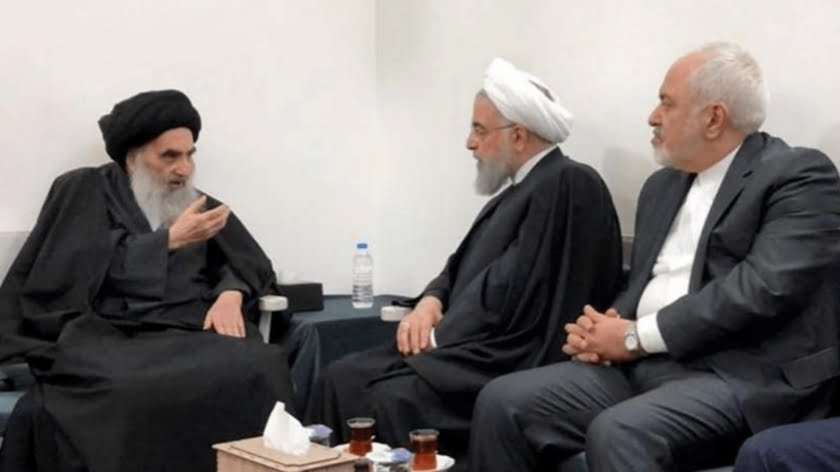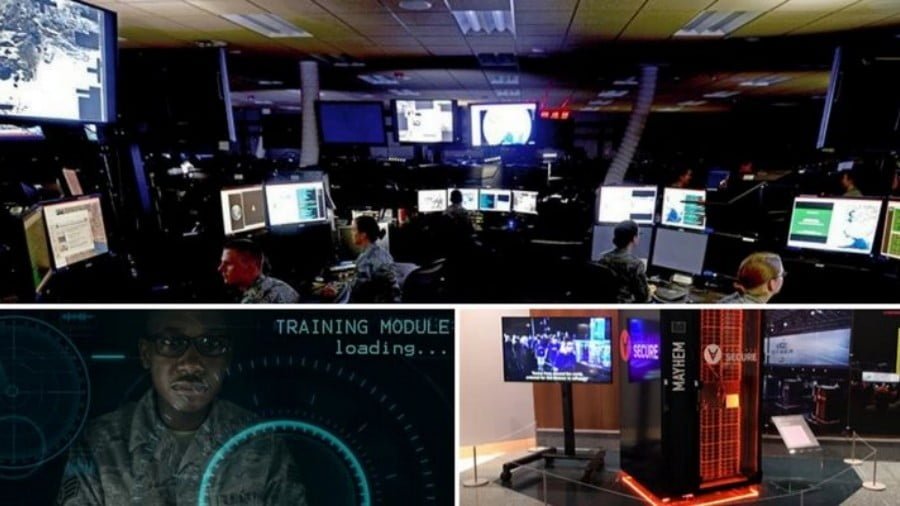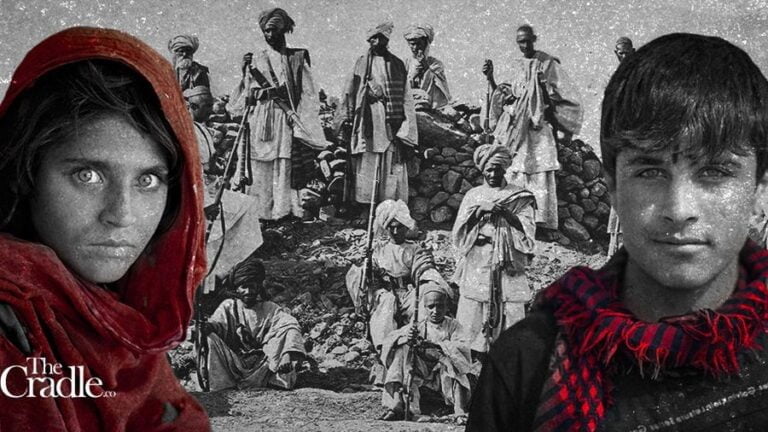Why Didn’t Iraq Retaliate Against Israel? Part 2
The US and Israel are manoeuvring between the internal Iraqi differences in order to hit Hashd al-Shaabi, the “Popular Mobilisation Forces” (PMF). These forces have gathered significant domestic support and created many enemies among the Iraqis. The reason for this antipathy is the Iranian fingerprint within the PMF. Yet Iran is supposed to be close to Iraq, a neighbouring country, with which it shares a strong religious bond. Iran supported the country when Baghdad was threatened by ISIS.
It goes back to when Moqtada was terrorising the city of Najaf with his thugs and threatening Grand Ayatollah Sayyed Ali Sistani, Sheikh Bashir al-Najafi and Sheikh Ishac al-Fay’yad. Moqtada was then Iran’s favourite pawn because he took the initiative to stand against the US forces. It was only after five years of Iran’s full support to Moqtada before the relationship started to degenerate in 2008, and became embittered a few years later. Al-Sadr accused Iran of splitting the Sadrist leadership into several groups: “Asaebahl al-Haq”, “Harakat al Nujabaa and “Kataeb Imam Ali”. But Moqtada was not the only one with an issue with Iran.
The Marjaiya held Iran responsible for supporting Moqtada at the start and disapproved of the 2003 and 2004 confrontation with the US forces, even if the Grand Ayatollah Sistani was the one who saved Moqtada’s life and prevented US forces from capturing him. Sayyed Ali Sistani todaymaintains a cordial relationship with the Sadrist leader – without necessarily endorsing his un-strategic acts– and shares with Moqtada his discontent with Iran’s policy and interferencein Iraqi affairs. Sayyed Sistani wanted to avoid Iraq becoming the theatre for the Iran-US struggle and continues to think along the same lines today. The Marjaiya in Najaf accused Soleimani and Hezbollah, tacitly, of intervening in Iraq and manoeuvring the formation of several governments.

To the displeasure and disagreement of both Sayyed Sistani and Moqtada al-Sadr, Iran played, along with Hezbollah, an essential role in routing a strong ideology among militants and security forces and in the formation of several Iraqi governments from just after the Prime Minister Ibrahim al-Jaafari until the current Premier Adel Abdel Mahdi. Sayyed Sistani, for the first time ever, wrote a letter in black and white to prevent al-Maliki from winning a third term. Haidar al-Abadi replaced al-Maliki, to the disapproval of Soleimani. Abadi was very hostile to Soleimani throughout his mandate, but the IRGC commander played an essential role in the election of Adel Abdel Mahdi and helped to bring down Abadi.
When ISIS occupied a third of Iraq and all differences were suspended- but not resolved- Hashd was formed through the call of Sayyed Sistani, armed by Iran who delivered weapons to Baghdad and Erbil to fight a common enemy before it reached the doorstep of Iran itself. Sayyed Sistani formed units within Hashd and armed them using the money of “beit al-mal” (the Islamic treasury).
The US and Iraq are now present within the same perimeter, in different military bases spread throughout Iraq. And the American forces have full control, independence and autonomy over thelarge sections of each base under their control. That was Abadi’s “gift” to the Americans because the (ex) Prime Minister had agreed to give the US forces full immunity and autonomy in the bases.
But the US – according to the Iraqi intelligence services in Baghdad who rely on friendly radar and trusted intelligence– is believed to be using the bases as a logistic support for Israel. The Iraqi sources have reason to believe that the suicide drones used against the Iraqi security forces, and the drone responsible for the assassination against the Iraqi commander, took off from different parts of Iraq itself.
Israel is renowned for its more than adequate reading of the political situation,most of the time, in every country it is operating in or with- essential knowledge for assessing threats and consequences. Indeed, the political situation in Iraq today does resemble the Lebanese political situation in 2006 when Israel decided to wage war on Lebanon. In 2006, Lebanon was divided between the group called the 8thof March that supports the “Axis of the Resistance” and the pro-US group called the 14thof March. Israel benefitted from the domestic internal division among Lebanese and wanted – but failed – to disarm Hezbollah and force its withdrawal from the entire south of Lebanon and the borders with Syria. The Lebanese government led by a 14thof March member unsuccessfully attempted to dismantle the most secret fibre-optic closed circuit Hezbollah communication system linking the various parts of Lebanon, including a few lines that connected with Syrian officials.
Today, in 2019, Iraq is in a similar situation to Lebanon in 2006. Even worse, in Iraq, the Shia are divided over the function and continuity of the Iraqi security force, Hashd al-Shaabi and how to “dilute” it within the Federal Police and the Army so as to avoid the emergence and officialising of an independent entity.
These domestic differences are providing a loophole for Israel to sneak in and fight Iran’s allies in Tehran’s backyard. US-Iran tension has reached its peak and a possible war against Iran continues to loom over the Middle East. Iran is said to have delivered precision missiles to the Iraqi forces. Regardless, the Shia Iraqi leader Sayyed Ammar al-Hakin said: “Iraq is not a warehouse for all non-Iraqi weapons; Iraq is not a theatre in any other war. We should putour differences aside.”
Iran wants Hashd to gain strength because ISIS and the US still have strong presences in Iraq. Tehran wishes to continue benefitting financially from Iraq’s stability to ease the US administration “maximum pressure” on its economy, sell its oil and electricity and promote its commerce. This is allowing the US and Israel to have some sort of free hand in Mesopotamia but not for long. Israeli Prime Minister Benyamin Netanyahu can no longer repeat, against Iraq, his hundreds of attacks on Syria in the last years because he will endanger US forces, for certain. Iraq is now starting, with its serious contacts with Russia, Iran and China, to look for alternative missile capabilities in order to prevent future aggression. Unlike Syria, for now Mesopotamia will not become Israel’s playground.
By Elijah J. Magnier
Source: Elijah J. Magnier







